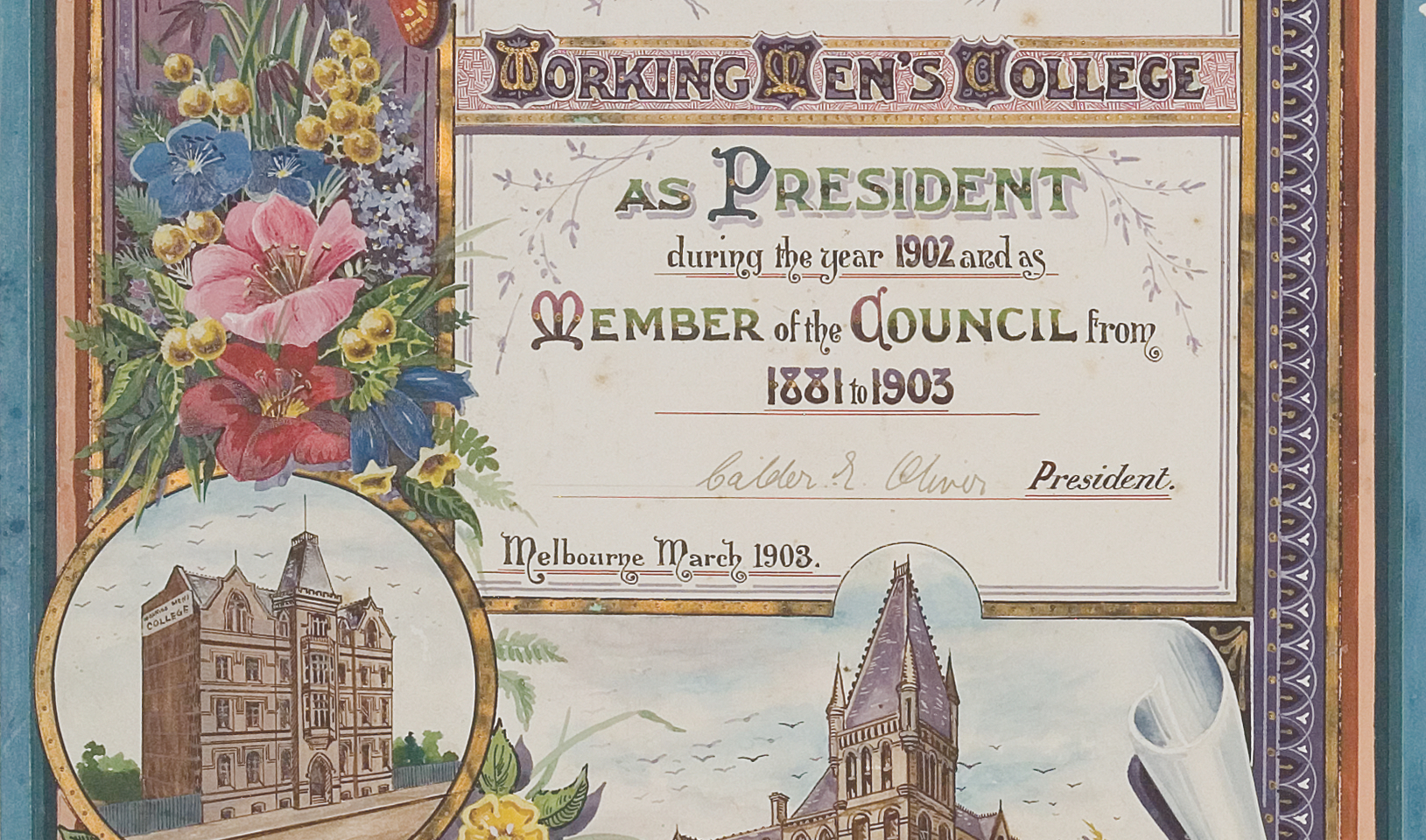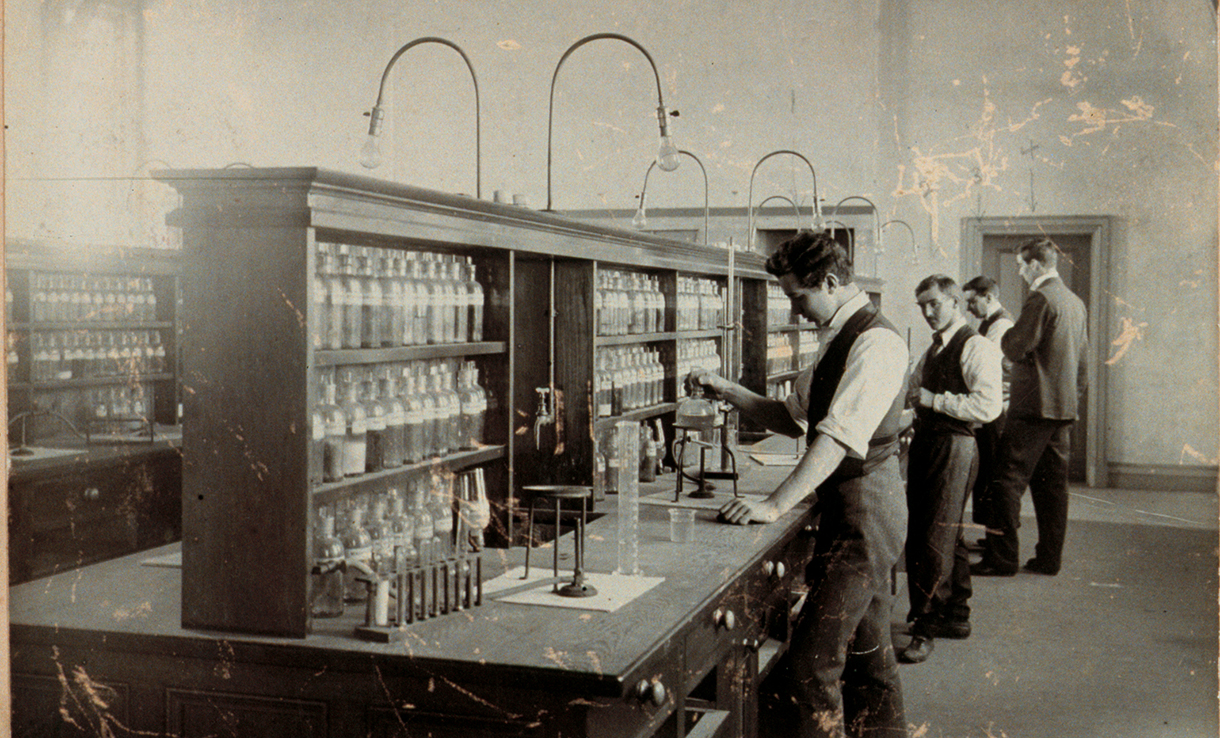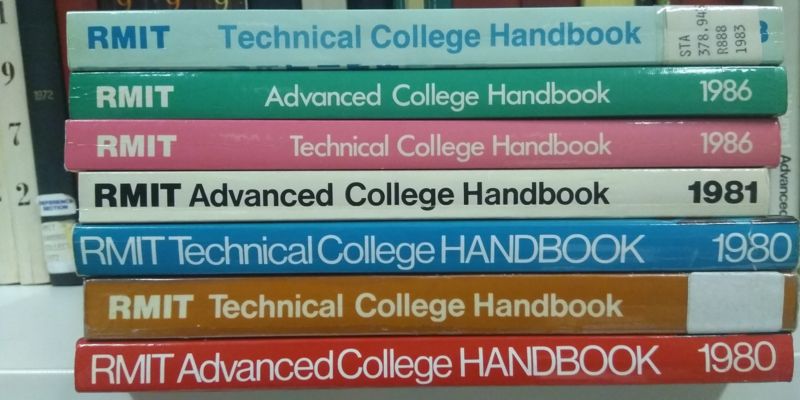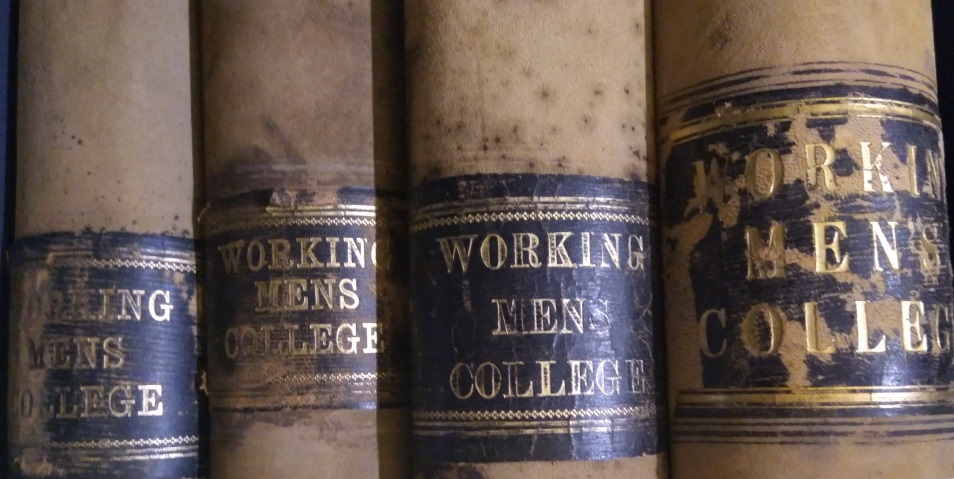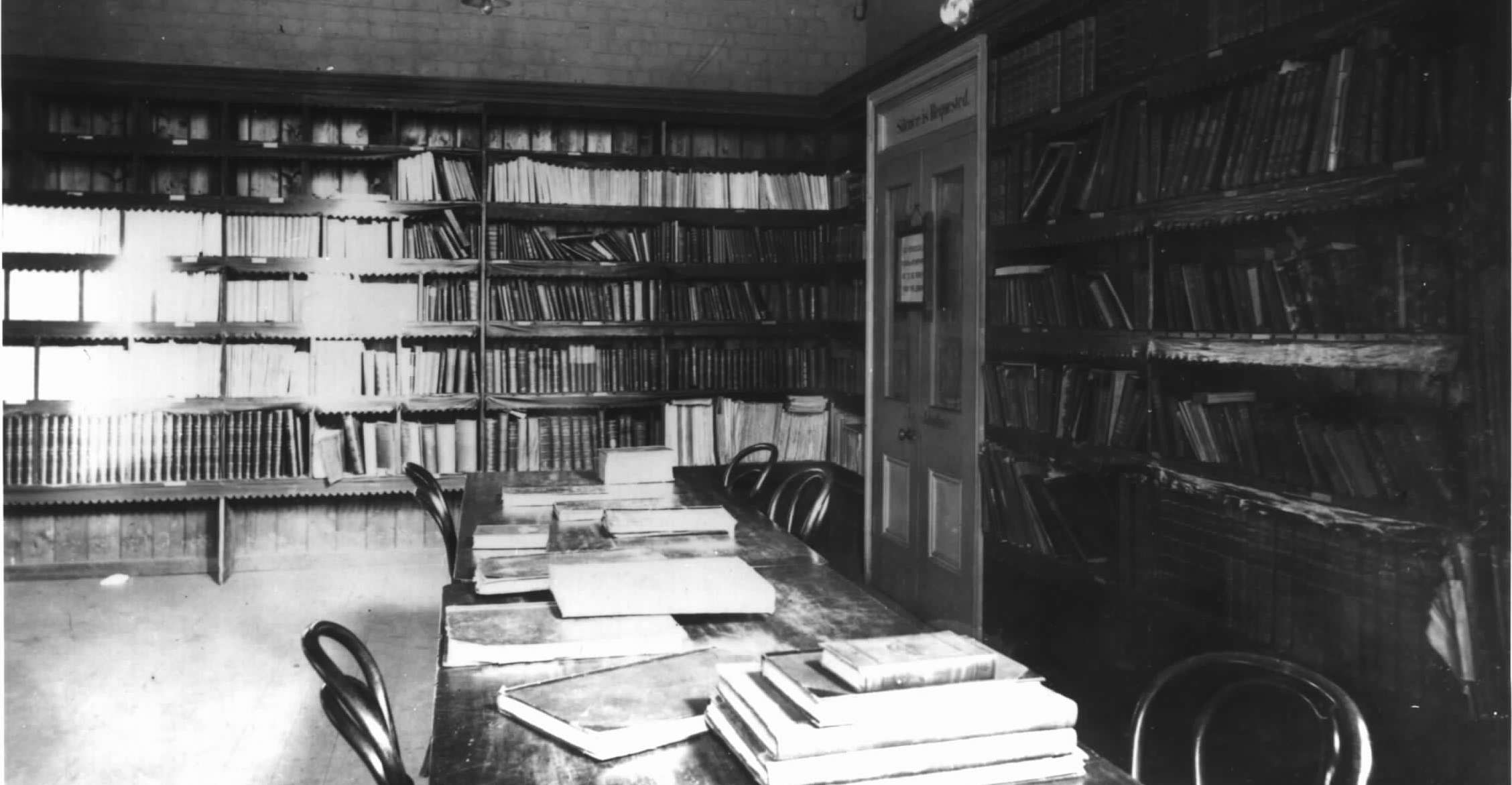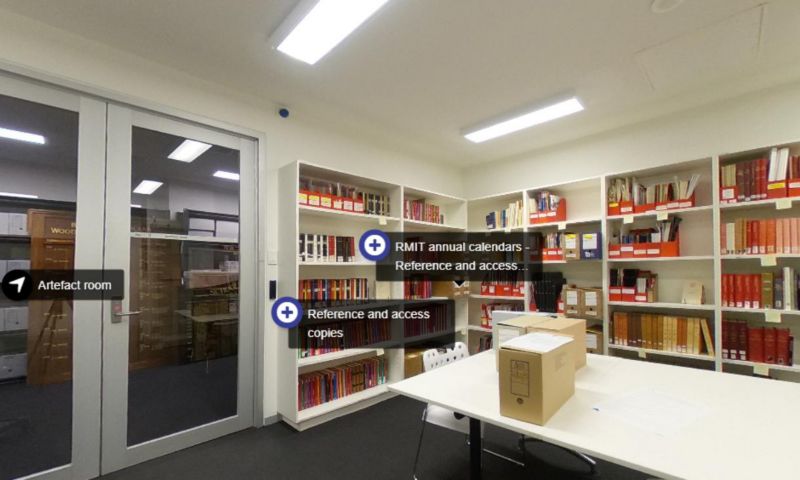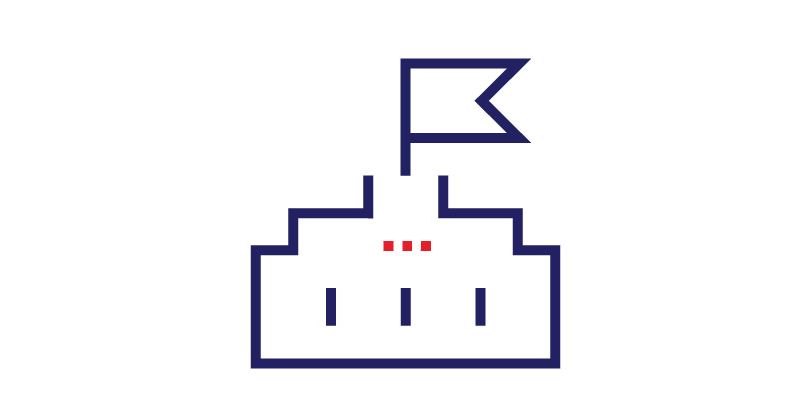RMIT University Archives Collection
An ever-growing repository of records that help to tell the story of how RMIT has evolved from the Working Men's College in 1887 to the global university of today.

RMIT University Archives Collection
An ever-growing repository of records that help to tell the story of how RMIT has evolved from the Working Men's College in 1887 to the global university of today.
RMIT University Archives Collection
An ever-growing repository of records that help to tell the story of how RMIT has evolved from the Working Men's College in 1887 to the global university of today.
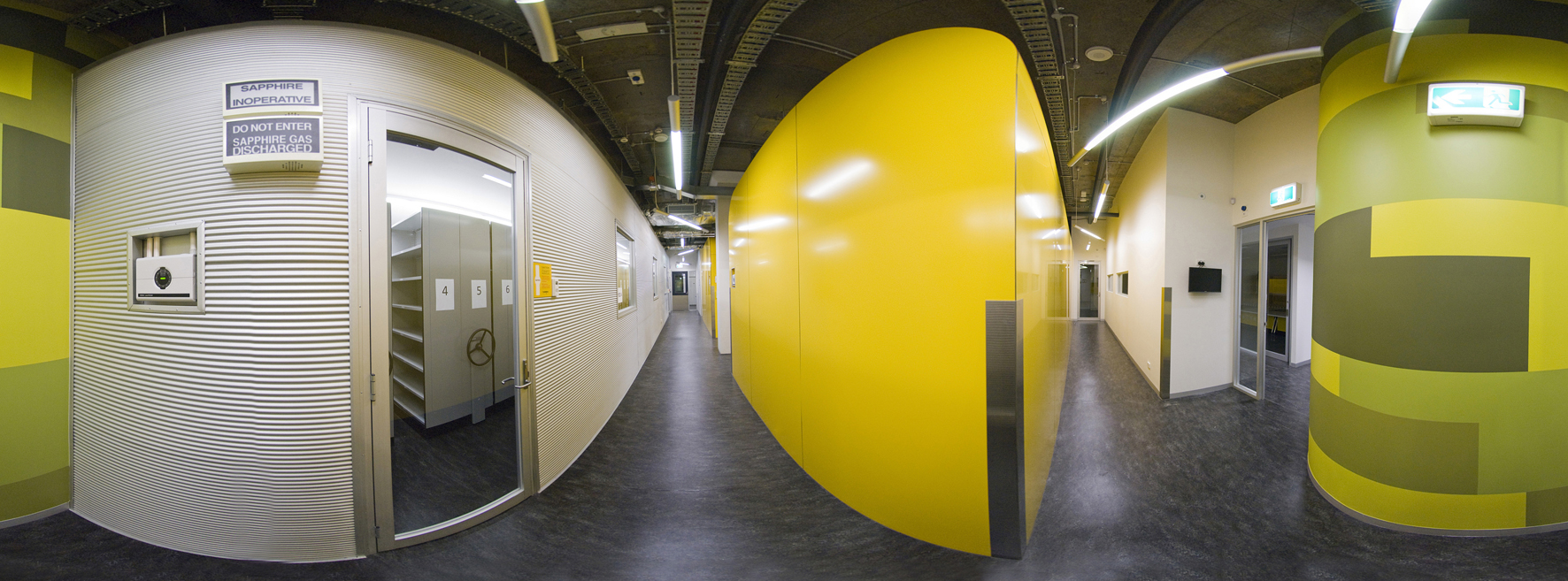
RMIT University Archives Collection
An ever-growing repository of records that help to tell the story of how RMIT has evolved from the Working Men's College in 1887 to the global university of today.

